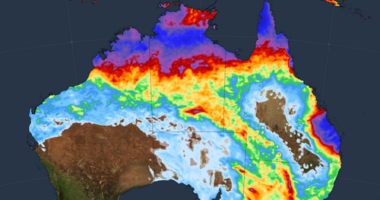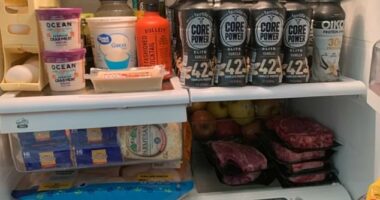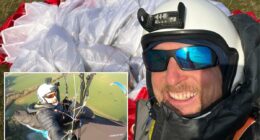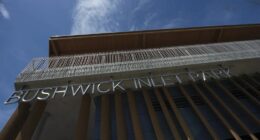Share this @internewscast.com
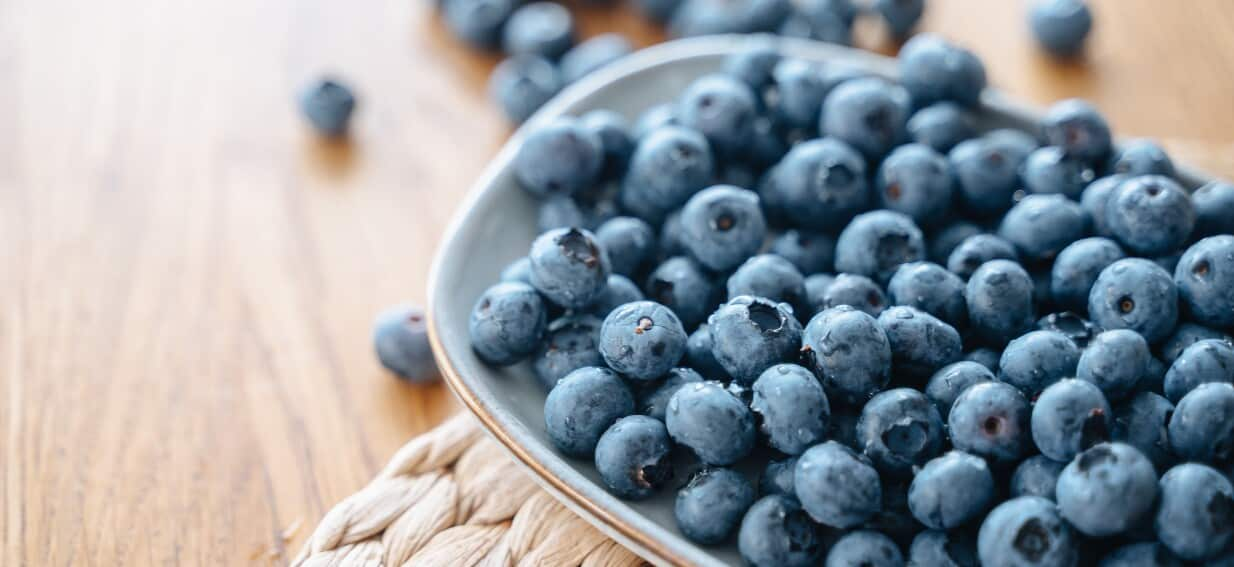
The NSW environment and food watchdogs say there is “no evidence” blueberries are unsafe to eat after a researcher raised concerns following her discovery of a banned chemical in samples she tested.
The NSW Environment Protection Authority (EPA) and NSW Food Authority on Friday released a joint statement saying it had reviewed the results of a 2024 research project.
SBS News understands that project was undertaken by Kirsten Benkendorff, a professor of marine science at Southern Cross University.
Benkendorff had been testing creeks exposed to run-offs from blueberry crops in the NSW Northern Rivers region — a major blueberry production hub — as well as crabs, oysters, and turtles in the marine environment and decided to investigate what might be getting into food.
The researcher collected samples from blueberries purchased at supermarkets across regional NSW, extracted them in her laboratory, and dispatched them to a laboratory in Sydney, which she described as nationally accredited, for pesticide testing.
In some, Benkendorff said, low levels of thiometon — a chemical banned in Australia due to its toxicity — were discovered. She said this did not indicate a major health concern but raised questions over where it was coming from.
In a statement on Friday, the EPA said: “The EPA has reviewed the results of a 2024 research project, which reported the presence of thiometon, a pesticide not registered for use in Australia, on store bought blueberries in Northern NSW.”
“Data from industry testing provider FreshTest for the same testing period as the research project — October and November 2024 — showed no evidence of thiometon residue on any berries tested.”
It said the research results were unreliable “because the methodology and analysis used were not accredited for testing fresh fruit such as berries”.
The NSW Food Authority intends to conduct additional tests on berries sold at retailers to confirm thiometon is not present in berries sold at retailers, the statement said.
Benkendorff had said thiometon could be coming in as a contaminant in another product used on crops. The EPA said it would “continue to focus compliance activities on lawful use of pesticides in the [NSW] Mid to North Coast regions.”
In other samples Benkendorff had tested, dimethoate was detected at high levels. Dimethoate is a widely-used pesticide to combat fruit flies and is legal to use in Australia, although is banned in the European Union and classed by the US Environmental Protection Agency as a “possible human carcinogen”.
The Australian Pesticides and Veterinary Medicines Authority in August said it was seeking submissions on a proposed suspension of the use of dimethoate on blueberries, raspberries and blackberries. It came in the wake of “new information” from Food Standards Australia and New Zealand that suggested Australians’ consumption of these berries had increased, and the safety margin between the possible level of dimethoate residues and maximum acceptable level of exposure is no longer be adequate.
However, it stated that the proposed suspension was a “precautionary measure” and considered the detected residue levels “are unlikely to pose a serious risk to human health.”
The EPA told SBS News it was “not aware of any reports of exceedances of the permitted maximum residue limit for dimethoate in berries”.
Industry group Berries Australia said it welcomed the statement from the EPA and NSW Food Authority, which it said confirmed “Australian berries are safe to eat and there is no evidence of misuse of pesticides”.
“Fresh berries undergo regular testing at multiple points in the supply chain, and the berry industry is firmly committed to providing a safe, nutritious product for Australian consumers and the appropriate use of agricultural chemicals,” the Berries Australia statement said.
Andrew Bell, managing director of blueberry farm Mountain Blue and president of the Australian Blueberry Growers Association, said it was “devastating” for the industry to have been “wrongfully targeted based on flawed testing”.
“Every industry deserves scrutiny and there are poor operators in every sector, but to publicly throw a whole industry under the bus based on flawed methodology is inexcusable,” Bell said.
He said pesticide use in Australia was highly regulated and the industry adhered to those standards “without fail”.
Benkendorff told SBS News she rejected the claim she had targeted the industry, saying what she was trying to highlight was a problem with the maximum residue limits set for pesticides in berries.
She said she had not found any pesticides over the maximum residue limits and her concern was that, at current allowable limits, some pesticides would exceed the acceptable daily intake for those who eat lots of berries each day.
Benkendorff acknowledged her method of testing was different to that typically used by wholesalers and growers. She described it as a “gold standard extraction method followed by a rigorous environment contaminate screen” that can detect a wider variety of pesticides — including dimethoate at lower levels and thiometon, the latter of which she said was not typically tested for.
“There is no evidence that my testing is flawed,” she said.
The NSW Food Authority recommends consumers wash all fresh fruit and vegetables with cool tap water immediately before eating.


